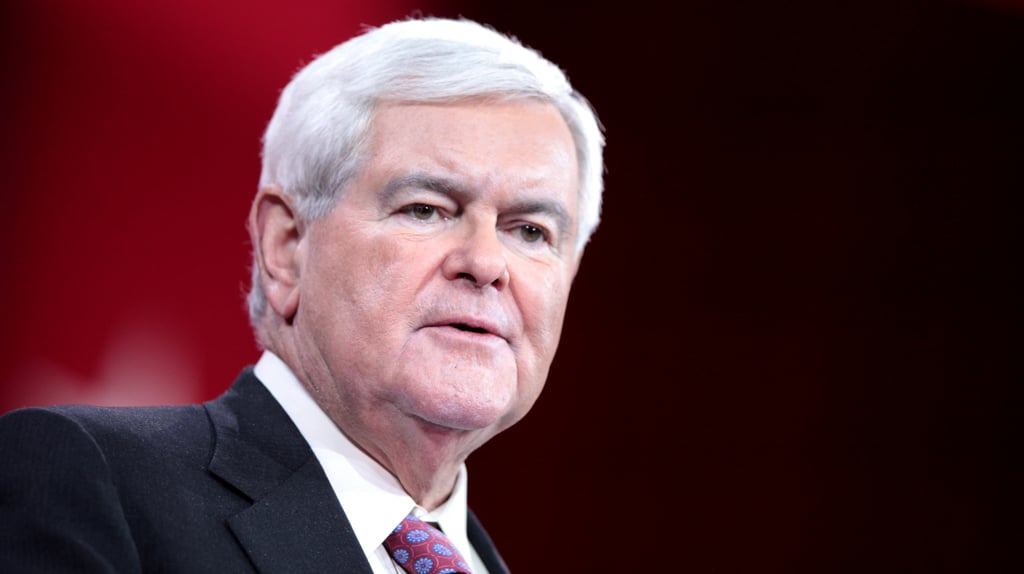Since last November’s presidential election, many among the 12 percent of Washington-area residents who work as career federal employees have had to cope with the anxiety that a Donald Trump-led government would make good on promises of “swamp-draining” by making deep cuts to agencies far and wide. Previous reports have backed up this fear, from transition officials asking the Energy Department to name people who worked on climate-change issues to House Republicans reviving an antiquated rule that allows Congress to reduce the salary of specific government workers to $1.
Most of these moves have been shrouded in claims of making government more efficient, but leave it to one of Trump’s biggest lackeys, former House Speaker Newt Gingrich, to lay bare the motivation. Concerned that Trump’s Washington neophytes like commerce secretary nominee Wilbur Ross might have a hard time in their new roles as agency heads, Gingrich made his case to the New York Times:
There’s a risk, however, that the agency’s permanent staff’s “No. 1 goal will be to find ways to sabotage each new cabinet secretary as soon as they walk through the door,” said Newt Gingrich, a former House speaker who was a campaign adviser to Mr. Trump. “All those bureaucrats overwhelmingly voted for Clinton. There won’t be any real cooperation until we change federal law so we can fire them.”
In other words, if you’re one of the 300,000 or so federal workers in DC (or among the 4 million nationally), Gingrich has peered into your soul and decided what fate should await you. It’s one thing to propose lightening the government payroll for the sake of budget-cutting—a frequent trope in modern US politics—but framing such plans in nakedly partisan terms doesn’t quite feel at home in a liberal democracy.
Modernizing civil-service guidelines to make it easier to remove employees isn’t necessarily anti-democratic, but among the US and its closest allies, it’s usually done with the goal of excising poor performers or shrinking bureaucratic processes in the name of efficiency, as 2012 reforms by the British government aimed to do. Eliminating civil servants en masse because their alleged political leanings is more evocative of strongman regimes like Turkey, where the government of President Recep Tayyip Erdoğan has fired or suspended more than 100,000 workers since a failed coup last summer.
Domestically, Gingrich’s yearning to reform the civil service to make it possible to sweep out workers because they didn’t vote Trump reeks of the spoils system, in which all government jobs were doled out as political patronage. That was the standard for federal hiring through 1871. Turnover between administrations was relatively placid for the first few decades, but became much more antagonistic in 1829 after the inauguration of the country’s first truly populist President, Andrew Jackson. From the next 42 years—few of which standout as banner moments for American democracy—every change in White House occupancy also brought wholesale turnover across the government. It took Ulysses Grant bowing to popular demand to reform the civil service to push for a merit-based federal payroll.
Meanwhile, decades of a patronage-only government did little to develop the city of Washington, which by the end of the spoils system still lacked paved roads and basic sanitation, even as its population swelled after the Civil War. In other words, DC’s development as an inhabitable place is at least correlational with the professionalization of government service.
And if modern-day political goons like Gingrich are looking to pick a fight with career civil servants based on a partisan hunch, he might have be more exact than making blanket statements. “I have worked under Republican and Democrat administrations,” says a career federal employee who voted for Hillary Clinton. “The office culture is that, first and foremost, we serve the nation and American people. The idea that I would ‘sabotage’ the incoming administration goes against the idea of devoted government service, and the oath I recited on my first day of work.”




















